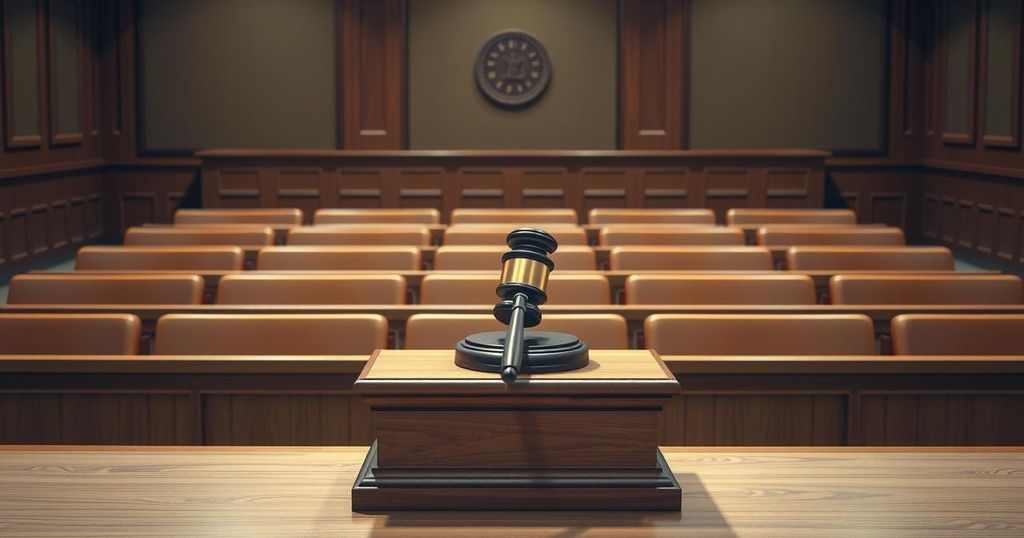Tunisia has commenced a mass trial of approximately 40 opposition figures accused of national security offences, an action denounced by lawyers and families as politically motivated. Charges against these individuals include plotting against state security and links to terrorism, which could lead to severe penalties. The trial has sparked condemnation from human rights advocates, who assert it reflects a worrying trend of judicial harassment under President Kais Saied’s regime.
The trial of approximately 40 prominent opposition figures in Tunisia commenced recently, with accusations of national security offenses paired with claims of political motivation from lawyers and family members. Defendants include activists, politicians, lawyers, and media figures, many of whom are known critics of President Kais Saied. The charges laid against them encompass “plotting against state security” and “belonging to a terrorist group,” with potential severe penalties, including capital punishment.
During the court proceedings, family members vocally expressed their support for the accused, chanting “freedom” and asserting that the judiciary is acting under government direction. Notably, defence lawyer Abdelaziz Essid asked the judges to end what he described as the “absurdity” of the trial, which has been criticized by Human Rights Watch as a “mockery of a trial” based on “abusive charges.” Following the session, the court adjourned to consider defense requests, including the personal attendance of the detained defendants.
Prominent figures implicated in the case include law expert Jawhar Ben Mbarek, Ennahdha leader Abdelhamid Jelassi, and National Salvation Front co-founder Issam Chebbi, among others. Lawyer Dalila Msaddek voiced her concern regarding potential pre-determined sentences, while several defendants face accusations related to contact with foreign diplomats. The first arrests occurred in February 2023, subsequent to which President Saied labeled those detained as “terrorists.”
President Saied, who consolidated power following his election in 2019, has incited mounting concern among rights organizations over the erosion of civil liberties. Defence teams have raised issues regarding limited access to trial documentation, with lawyer Essid lamenting, “None of the lawyers have the complete file.” From incarceration, Ben Mbarek characterized the proceedings as an instance of “judicial harassment” aimed at silencing dissent.
The trial’s progression has encountered intense criticism, with opposition leader Ahmed Nejib Chebbi denouncing the hearings as unjust and affirming the defendants’ commitment to non-violence and legal adherence. He has maintained that opposing governing authority is an inherent right. Notably, while Issam Chebbi faces trial, his brother remains free and active.
Saied has remained steadfast in his affirmation of non-interference in judicial processes, despite pressures from the public. Additionally, numerous critics of the regime have faced various charges, including some relating to the dissemination of false information. The UN has urged an end to the ongoing pattern of arbitrary detentions affecting activists and political figures, to which Tunisia’s foreign ministry reacted with disapproval, asserting that the nation can offer lessons to others on governance.
The ongoing trial of prominent opposition figures in Tunisia raises significant concerns regarding political motivations behind the charges. With allegations of judicial bias and a systematic suppression of dissent, the case has attracted international criticism, particularly from human rights organizations and the United Nations. The situation underscores the precarious state of civil liberties in Tunisia, further emphasizing the need for transparency and justice within the judicial system.
Original Source: www.al-monitor.com




